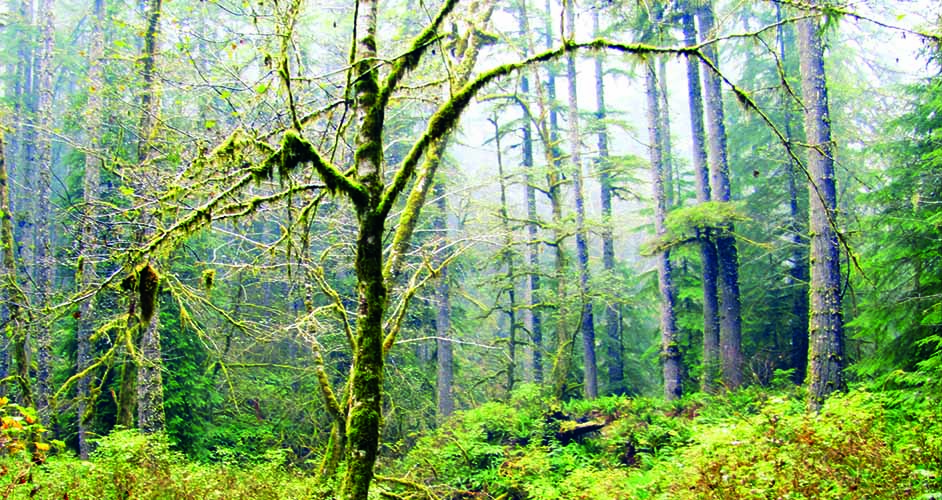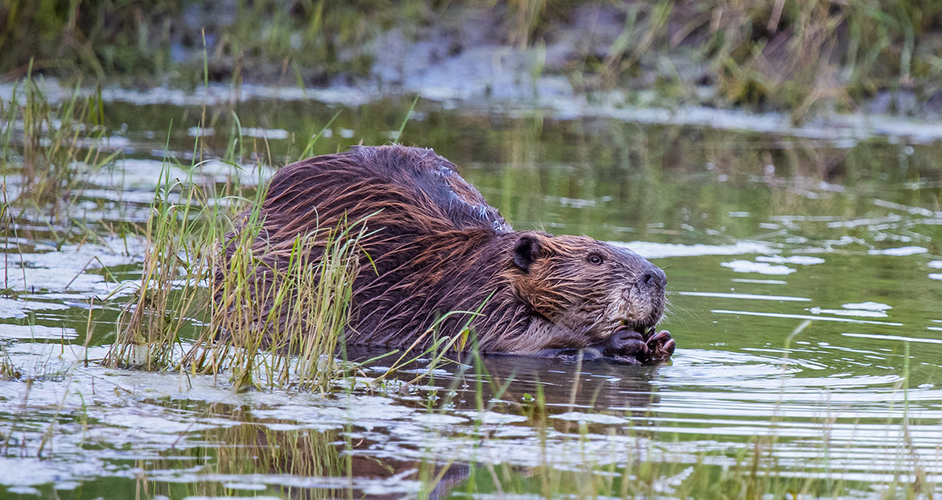Forest Flash September 2021
In Pacific Forest Trust’s e-newsletter, Forest Flash, we send you the most recent PFT news and updates on forests, clean water, climate, and wildlife, no more than once or twice a month. Subscribe here.

Elliott State Forest, Oregon’s oldest state forest, is an irreplaceable resource.
Earlier this month, Oregon State University officials announced that ownership of the Elliott State Forest is no longer an option for them, although they are committed to implementing climate change research on the ESF. Thus, the state is once again seeking a new owner for the forest.
In 2017, the state issued a $100 million bond to protect the key values of this ecological marvel in the Oregon Coast Range. That legislation referenced conservation easements as tools to ensure its public trust values were conserved and that public use would be continued. This public commitment to ensuring the lasting protection of the forest must be honored. A working forest conservation easement (WFCE) is the best mechanism for protecting the Elliott while also underpinning the long-term research by OSU’s College of Forestry on the ecological role of forests in climate change.
A WFCE will protect the forest under any owner. It will assure the public the Elliott is permanently conserved and well-managed for all its public benefits and values. WFCEs are proven, effective, and enforceable tools that guide future management to benefit wildlife, water, and the climate, compatibly with sustainable forest management. As the state considers the future of the Elliott, PFT will continue to engage with stakeholders and decision-makers to ensure the forest is conserved and well-managed for all its public trust values.

The work of ‘nature’s engineers’ improves water storage, water quality, and stream function.
In the course of our conversations with PFT stakeholders, we hear a lot of interest, but also debate, about the role of beavers in habitat restoration and watershed function. Beavers have been hunted for their pelts for over 150 years. More recently, they are being killed and harassed because some landowners and managers fear that they may damage road systems due to potential flooding on low lying road segments. But beavers are increasingly being recognized and appreciated for their benefits to forests, reducing fire risks, and enhancing meadows and streams. We are realizing they play an important role in making landscapes more resilient to climate change by improving water storage, water quality, and stream function in a warming, drying West.
Increasingly, scientists, landowners and managers are welcoming beaver back to help re-water meadows, increase groundwater storage, and improve fish habitat. Beavers play an important role on a number of our conserved lands, including the McCloud Soda Springs property in California and the van Eck forest in Oregon. Learn more about our work to protect water sources, and please consider supporting PFT as we work to conserve additional habitat throughout the region.
A More Flexible Forest Legacy Program Will Help Achieve “30×30”

Saving the earth’s amazing heritage of wildlife and plants is the goal of the “30×30” initiative, America the Beautiful, which seeks to conserve 30% of our lands and waters by 2030. Working with willing landowners will be key to meeting these goals, as so many of our iconic landscapes are checker-boarded ownerships between public and private lands. And, as we increasingly recognize that working at the landscape level is vital to conserving ecosystems like forests, private lands conservation-based management within those landscapes is critical.
President Biden has called upon federal agencies to reexamine current policies to see how cooperation with private landowners can be improved. In this regard, Congressman Jared Huffman has led a number of federal lawmakers in asking Agriculture Secretary Tom Vilsack to increase the flexibility and utility of the Forest Legacy Program (FLP). The legislators are urging the Secretary to allow accredited land trusts to work with states to hold the conservation interests acquired with help from the FLP.
This would increase the impact and scope of the program, as many landowners do not want to expand public ownership on their lands. It would also leverage FLP dollars by bringing in more private support while decreasing long-term costs for governments as land trusts assume the stewardship and monitoring of conserved lands. We applaud Congressman Huffman’s leadership on this and thank all the legislators advancing this common sense move to expand voluntary working lands conservation. Such action is essential to saving our precious wildlife heritage for future generations.
